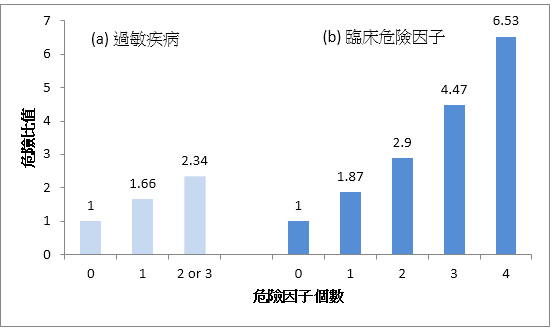Date: 2019-08-12
This study is one of very few to examine the relationship between attention deficit hyperactivity disorder (ADHD) and allergies, in combination with indicators of inflammation and immune responses, and to explore the potential inter-relationships among diet, nutritional biochemistry, and ADHD.
ADHD appears to be becoming more prevalent in children and it can have substantial impacts on children and their families. The work of Dr Wen-Harn Pan and colleague at Academia Sinica, National Taiwan University, Chang-Kung Medical Center, and Chung Hua University of Medical Technology explored comorbidities, biomarkers, and dietary and nutritional biochemistry profiles associated with ADHD with the ultimate aim to understand its complex etiology and improve diagnosis, prevention and management.
Dr Pan and her colleagues recruited 216 children diagnosed with ADHD, and 216 children without ADHD but who were similar in terms of age, sex, height and weight from 31 schools in Taiwan. The participants were elementary students and a diagnosis of ADHD was confirmed by child psychologist.
The International Study of Asthma and Allergies in Childhood questionnaire was used to measure allergic symptoms. Dietary intake of the participants was assessed using a food frequency questionnaire (FFQ). Fasting venous blood was collected and analyzed for complete blood count, white blood cell differential count, immunoglobulin (Ig) E level, serotonin level, and nutritional biochemistry. The odds ratios for children with varying numbers of risk factors were estimated and a structural equation model (SEM) was employed to link diet, nutritional markers and ADHD.
The transdisciplinary team identified low levels of haemoglobin, serotonin, but high levels of eosinophil, IgE as being associated with ADHD. At the same time, symptoms of both rhinitis and eczema were significantly associated with increased risk of ADHD. It is likely that the immune responses resulting from allergic diseases may affect the central nervous system and therefore children may be more likely to develop or aggravate neurological disorders.
A further question is whether common comorbidities or biochemical factors are singly or additively associated with an increased risk of ADHD as there may be a cumulative effect of risk factors. Overall, the greater the number of comorbidities the child had, the greater the chance they would be diagnosed with ADHD. Children with signs of allergy were two times as likely to have ADHD, and the presence of four and more abnormal clinical chemistry items was associated with a 6-7-fold increase in the risk of having ADHD. Therefore ADHD’s etiology could be multidimensional or the risk factors have shared etiology with ADHD.
With respect to nutritional biochemistry, ADHD children had significantly lower serum levels of vitamin B12, folate, vitamin B6, ferritin concentration, and monounsaturated fatty acids (MUFA), but higher levels of serum saturated fatty acids (SFA), n-6/n-3 fatty acid ratio, and inorganic phosphorous concentration, compared to healthy control. Children with ADHD had more intake of nutrient-poor foods such as high sugar and high-fat foods, and had less intake of vegetable, fruit, and protein-rich foods than their counterparts. SEM analysis showed that the poor nutritional biochemistry profiles linked the association between unhealthy dietary patterns and ADHD. An unhealthy dietary pattern may be a predecessor of the poor nutritional biochemistry status, and managing diet and nutrition conditions should be considered to improve ADHD symptoms in children.
By better understanding theses associations, there may be potential to modify some of these risk factors and in turn to improve quality of life for children diagnosed with ADHD. Routine screening for allergy and associated clinical chemistry and assessing dietary quality are straightforward and can be easily performed. Therefore the findings of Dr Pan’s team play an important role in devising comprehensive diagnostic and treatment strategies for allergy and diet associated ADHD.
The papers presenting the results entitled “Attention deficit-hyperactivity disorder is associated with allergic symptoms and low levels of hemoglobin and serotonin.” was published in Scientific Reports. 2018 Jul 6; 8(1):10229. And “Dietary Profiles, Nutritional Biochemistry Status, and Attention-Deficit/Hyperactivity Disorder: Path Analysis for a Case-Control Study” in Journal of Clinical Medicine. 2019 May 18; 8(5):709.
The study is funded by Academia Sinica and Ministry of Science and Technology in Taiwan.
-
Ms. Pei-Chun Kuo, Media Team, Secretariat, Central Administrative Office, Academia Sinica
(02) 2789-8821,deartree@gate.sinica.edu.tw
-
Chang-Hung Chen, Public Affairs Section, Secretariat, Academia Sinica
(02) 2789-8059,changhung@as.edu.tw









 Home
Home



